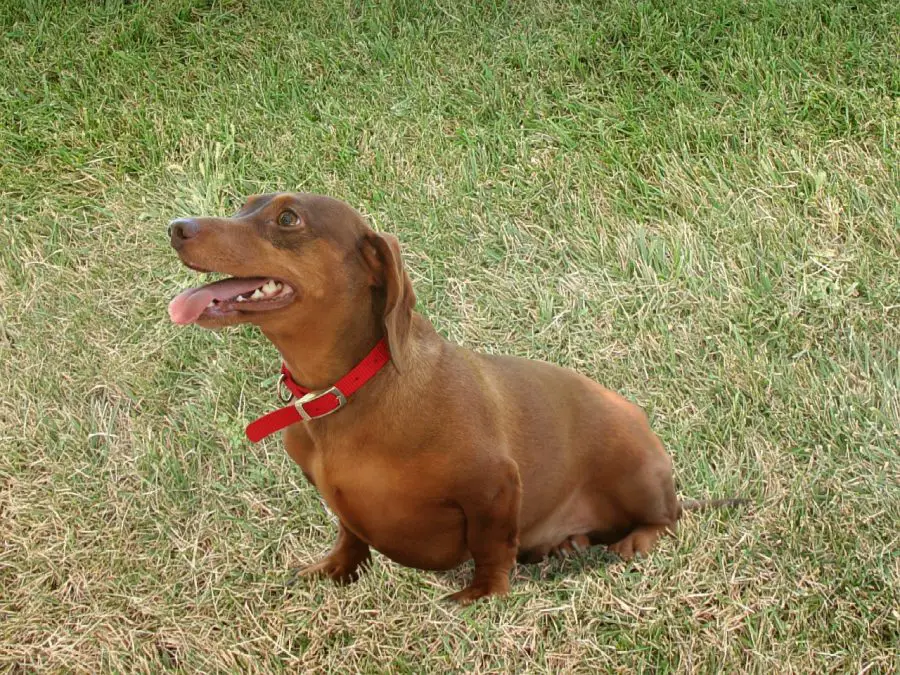
Introduction
Inviting a Dachshund pup right into your home brings pleasure and exhilaration, however it also comes with the difficulties of teething and eating. Comprehending this stage is important for a harmonious house.
Recognizing Dachshund Puppy Teething
Teething is an all-natural process during which a pup's infant teeth drop out to give way for their adult teeth. This stage typically starts around 3 to 4 months of age and can last up until they are 6 to 8 months old.
Indications of Teething in Dachshund Puppies
Recognizing the indications of teething is important for supplying suitable care and support to your Dachshund pup. Typical indications consist of excessive chewing, salivating, swollen gums, and reluctance to eat tough food.
Tips for Soothing Teething Discomfort
Teething can be unpleasant for Dachshund pups, however there are a number of techniques you can make use of to aid ease their discomfort.
Providing Teething Toys
Teething toys are particularly designed to offer alleviation for teething pups by providing a safe electrical outlet for eating. Pick playthings made from sturdy products that are safe for your young puppy to chew on.
Providing Frozen Treats
Frozen deals with such as ice dices or icy fruit purees canister assist numb your Dachshund young puppy's gums and supply short-lived relief from teething pain. However, bear in mind the components and stay clear of anything that can be unsafe to your pup.
Mild Gum Massages
Carefully rubbing your Dachshund pup's gums with a tidy finger or a damp towel can help soothe soreness and promote healthy and balanced dental hygiene. Make certain to use mild stress and stop if your puppy shows any type of indicators of pain.
Taking Care Of Dachshund Puppy Chewing Behavior
Eating is an all-natural habits for Dachshund young puppies, however it can end up being troublesome otherwise managed correctly.
Rerouting Chewing Behavior
Redirecting your Dachshund puppy's chewing actions onto appropriate playthings or chews is necessary for preventing harmful chewing routines. Motivate them to chew on designated toys and applaud them for making the right choice.
Securing Your Belongings
Dachshund puppies have a propensity for searching for and chewing on house products, so it's necessary to puppy-proof your home. Maintain valuable or harmful items unreachable and usage bitter-tasting sprays or deterrents on furniture to dissuade eating.
Progressive Transition to Adult Teeth
As your Dachshund young puppy's grown-up teeth begin ahead in, their teething phase will slowly diminish.
Conclusion: Supporting Healthy Teeth and Behaviors
Teething and chewing are natural procedures for Dachshund young puppies, yet they require perseverance and guidance from their proprietors. By recognizing the phases of teething and executing proper techniques, you can help your pup browse this developmental landmark effortlessly.
Frequently Asked Questions About Dachshund Puppy Teething and Chewing
Q: How long does the teething stage last in Dachshund young puppies?
A: The teething phase in Dachshund pups typically lasts from around 3 to 4 months old up until they are 6 to 8 months old. Nevertheless, every pup is various, so the period might differ.
Q: My Dachshund pup is eating every little thing visible. What should I do?
A: Dachshund puppies have a natural desire to eat throughout the teething stage, but it's important to reroute this habits onto proper toys and chews.
Q: Is it typical for my Dachshund pup to lose their child teeth?
A: Yes, it's entirely normal for Dachshund pups to shed their infant teeth as they change to adult teeth.
Q: Should I be worried if my Dachshund puppy's gums bleed throughout teething?
A: It's common for a young puppy's periodontals to hemorrhage slightly during the teething process as their child teeth loosen and grown-up teeth emerge.
Q: How can I discourage my Dachshund pup from eating on furniture and various other unacceptable items?
A: To inhibit eating on furnishings and other inappropriate items, use bitter-tasting sprays or deterrents, provide lots of alternative eat playthings, and commend your young puppy for choosing the best toys to chew on.
Q: How long does the teething phase last in Dachshund puppies?
A: The teething stage in Dachshund pups normally lasts from around 3 to 4 months of age up until they are 6 to 8 months old. Nonetheless, every young puppy is different, so the period might vary.
Q: My Dachshund pup is chewing whatever visible. What should I do?
A: Dachshund puppies have an all-natural impulse to chew throughout the teething stage, yet it's necessary to redirect this habits onto ideal playthings and chews. Give a lot of chew playthings, supervise their play, and dissuade eating on restricted things.
Q: Is it typical for my Dachshund pup to shed their primary teeth?
A: Yes, it's completely typical for Dachshund young puppies to shed their baby teeth as they shift to adult teeth. You may discover their teeth scattered around your home or observe them falling out while they chew on playthings or treats.
Q: Should I be worried if my Dachshund young puppy's gum tissues bleed throughout teething?
A: It's common for a puppy's gum tissues to hemorrhage somewhat throughout the teething process as their baby teeth loosen up and grown-up teeth emerge. If bleeding is excessive or persistent, or if your young puppy reveals indicators of pain, consult your veterinarian for guidance.
Q: How can I discourage my Dachshund young puppy from eating on furnishings and various other improper products?
A: To prevent chewing on furniture and various other unsuitable products, make use of bitter-tasting sprays or deterrents, offer lots of alternate chew playthings, and commend your puppy for picking the best playthings to chew on. Miniature Doxie for Sale and perseverance are vital to showing appropriate eating actions.
By addressing these often asked concerns, Dachshund proprietors can acquire valuable insights right into their pup's teething and chewing habits and give suitable care and support during this developing phase. Keep in mind to speak with your vet if you have any type of issues concerning your pup's dental wellness or actions.
